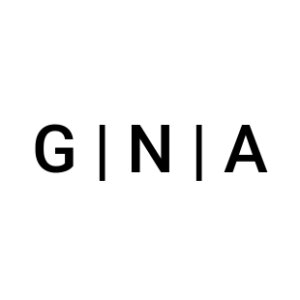Best ADR Mediation & Arbitration Lawyers in Munchenbuchsee
Share your needs with us, get contacted by law firms.
Free. Takes 2 min.
List of the best lawyers in Munchenbuchsee, Switzerland
About ADR Mediation & Arbitration Law in Munchenbuchsee, Switzerland
Alternative Dispute Resolution or ADR refers to ways of resolving legal conflicts outside the traditional courtroom system. The two most common forms are mediation and arbitration. Mediation is a structured negotiation process where an impartial mediator helps parties reach a mutually agreeable solution. Arbitration involves an independent arbitrator who listens to both sides and makes a binding or non-binding decision. In Switzerland, including Munchenbuchsee, ADR offers efficient, confidential, and cost-effective methods for addressing civil, commercial, family, and labor disputes.
Why You May Need a Lawyer
While ADR is designed to be more accessible and user-friendly than court litigation, there are several situations where legal advice is invaluable. You may need a lawyer if:
- You have a contractual dispute that includes a mediation or arbitration clause
- You are unsure which form of ADR is most suitable for your situation
- The opposing party is represented by legal counsel
- You are concerned about protecting your legal rights or interests during the process
- You need guidance preparing or reviewing a settlement or arbitration agreement
- The dispute involves complex financial, business, or cross-border issues
- Language barriers or legal terminology make participation challenging
A lawyer can help you understand your options, represent you during proceedings, and ensure that any final agreement is legally sound and enforceable.
Local Laws Overview
Switzerland has a strong legal framework for ADR, and this also applies in Munchenbuchsee. Key legal aspects include:
- The Swiss Civil Procedure Code (Zivilprozessordnung, ZPO) requires parties to attempt mediation before certain civil lawsuits may proceed to court
- Arbitration in Switzerland is governed by both the Swiss Civil Procedure Code and the Federal Act on Private International Law (for international cases)
- Mediation is confidential and voluntary - parties are not compelled to reach an agreement
- Arbitration awards are generally final and enforceable, with limited grounds for appeal
- Agreements reached through ADR can be made legally binding and enforceable
- Local chambers of commerce and notaries may offer mediation or arbitration services
- Professional mediators and arbitrators must adhere to codes of conduct ensuring independence, impartiality, and confidentiality
Frequently Asked Questions
What is the difference between mediation and arbitration?
Mediation helps parties find a voluntary, mutual solution with the help of a neutral mediator. Arbitration is more formal and resembles a court proceeding, where an arbitrator delivers a decision that may be binding or non-binding.
Is ADR legally recognized in Munchenbuchsee?
Yes, mediation and arbitration are fully recognized under Swiss law and supported by the Swiss Civil Procedure Code and relevant federal legislation.
Can I be forced to participate in ADR?
Typically, ADR is voluntary. However, Swiss law may require parties to attempt mediation before certain civil cases proceed to court. Arbitration may be mandatory if specified in a valid contract.
Are ADR agreements enforceable?
Yes, settlements reached in mediation and arbitration awards are enforceable by Swiss courts, provided they are properly documented and meet legal requirements.
How long does ADR take compared to a court case?
ADR usually takes less time than traditional litigation. Many disputes are resolved within weeks or months rather than years.
How much does ADR cost?
Costs vary, but ADR is generally less expensive than litigation. Fees depend on the complexity of the dispute, the services of the mediator or arbitrator, and any required legal representation.
Can I choose my own mediator or arbitrator?
Yes, parties often select a mediator or arbitrator together or use those recommended by a local institution. Some contracts specify a particular individual or service.
Is the process confidential?
Confidentiality is a cornerstone of ADR in Switzerland. Discussions, documents, and settlement terms are generally not disclosed outside the proceedings.
Can I have a lawyer represent me during ADR?
Yes, you have the right to consult with or be represented by a lawyer during both mediation and arbitration.
What kind of disputes can be resolved with ADR?
ADR is suitable for most civil, commercial, family, labor, and even some consumer disputes, provided all parties agree to the process.
Additional Resources
If you require further support regarding ADR mediation and arbitration in Munchenbuchsee, consider the following resources:
- Bernese Bar Association (Bernischer Anwaltsverband): Information on finding qualified ADR lawyers in the region.
- Swiss Arbitration Association (ASA): Provides lists of arbitrators and information about arbitration in Switzerland.
- Swiss Chamber of Commercial Mediation (SKWM): Offers directories of certified mediators.
- Kreisgericht Bern-Mittelland: The local district court, which can provide information about court-referred mediation.
- Federal Office of Justice (FOJ): Source for Swiss legal texts and guidance on ADR matters.
Next Steps
If you believe ADR is an option for your dispute in Munchenbuchsee, consider these steps:
- Assess whether your dispute is suitable for mediation or arbitration.
- Contact a local ADR lawyer to review your case and advise on the best course of action.
- Reach out to reputable mediation or arbitration service providers in the region.
- Prepare all relevant documents and information before your first meeting or session.
- Engage in the ADR process with an open mind and willingness to find a mutually beneficial outcome.
- Ensure that any agreement reached is documented and, if necessary, made legally binding through the appropriate legal channels.
Legal support can make a significant difference in the ADR process, ensuring your rights are protected and the solution reached is fair and enforceable.
Lawzana helps you find the best lawyers and law firms in Munchenbuchsee through a curated and pre-screened list of qualified legal professionals. Our platform offers rankings and detailed profiles of attorneys and law firms, allowing you to compare based on practice areas, including ADR Mediation & Arbitration , experience, and client feedback.
Each profile includes a description of the firm's areas of practice, client reviews, team members and partners, year of establishment, spoken languages, office locations, contact information, social media presence, and any published articles or resources. Most firms on our platform speak English and are experienced in both local and international legal matters.
Get a quote from top-rated law firms in Munchenbuchsee, Switzerland — quickly, securely, and without unnecessary hassle.
Disclaimer:
The information provided on this page is for general informational purposes only and does not constitute legal advice. While we strive to ensure the accuracy and relevance of the content, legal information may change over time, and interpretations of the law can vary. You should always consult with a qualified legal professional for advice specific to your situation.
We disclaim all liability for actions taken or not taken based on the content of this page. If you believe any information is incorrect or outdated, please contact us, and we will review and update it where appropriate.









